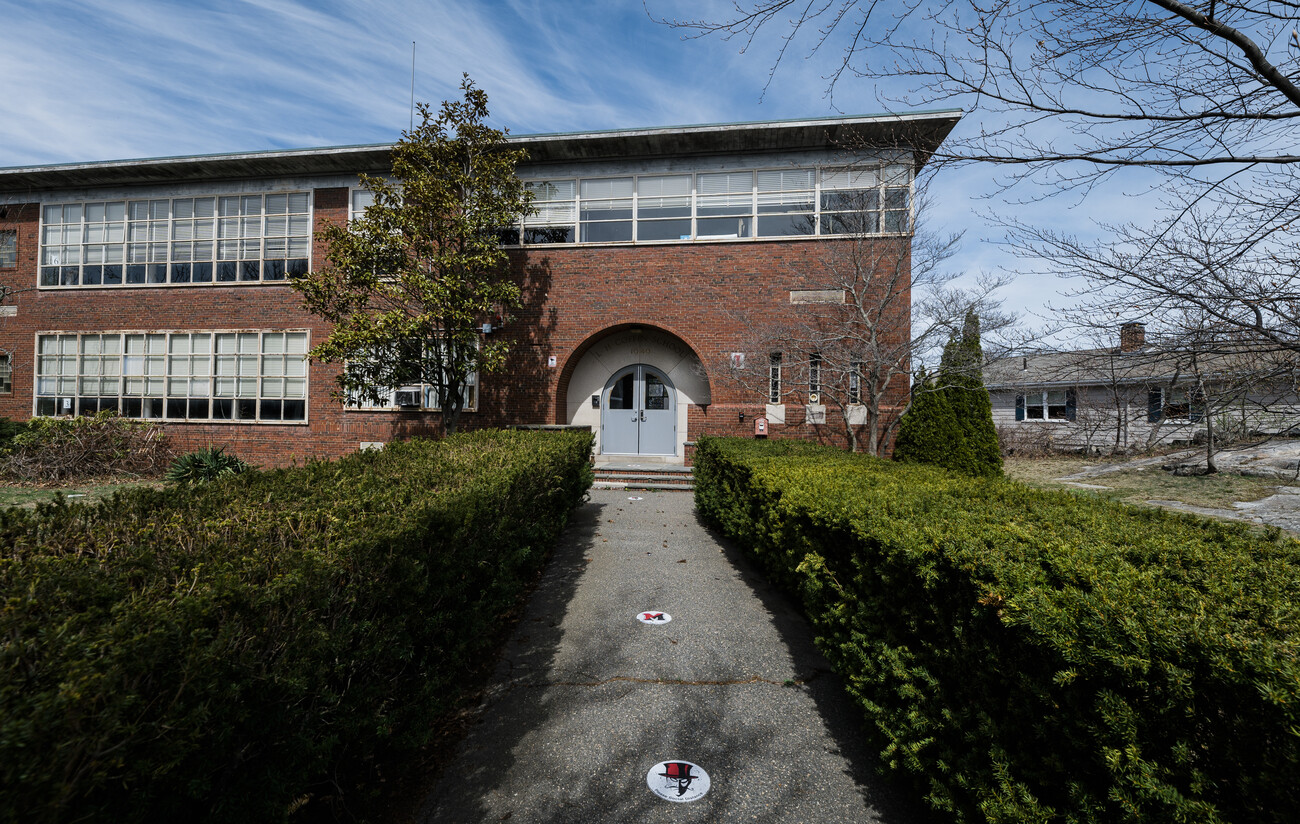The Select Board picked up where both the School Committee and the Housing Production Plan Implementation Committee have recently left off with discussions of the future of the Coffin School building at their meeting on Wednesday, Sept. 27. Chair Erin Noonan, who is also the chair of the HPPIC, first reiterated the potential benefits of rebranding the property could have on the affordable housing market.
“The Coffin property through the housing production plan is identified as one of less than a dozen properties that the town owns that we could leverage for our affordable housing goals,” Noonan said. “A Coffin visioning study emphasized some priorities around the neighborhood’s desire to see a large part of that remain open space for public use.”
She emphasized that the property space could create new diverse housing opportunities while accommodating the public use simultaneously.
“I’m kind of surprised that the School Committee hasn’t at least at this point given us an indication of if they’re going to use it and in what capacity,” Board member Moses Grader added. “We certainly have a lot of ideas and needs for the use of this property.”
Noonan informed her fellow board members that the HPPIC has an upcoming fall retreat where the discussion will continue. The Select Board emphasized they will continue to monitor the situation.
Financial Director Aleesha Benjamin approached the board to inform them of the new purchasing card initiative the town is adopting among other financial policies. The “p-card” initiative’s intention is to streamline and better track the overall spending of town funds by department leaders.
“It’s a way of protecting the town,” Benjamin said. “They’re going to sign off that they’re only going to spend for lawful purposes. If they did spend it for any unlawful purpose they would be the one that would have to pay it back… we can approve and see what they’re spending. It’s a nice little feature.”
Town Administrator Thatcher Kezer added that this initiative was necessary because of the number of transactions where credit card payment is the only way to pay.
The Board also approved the funding needed for two important contracts. The first was a new partnership with Sprague Energy to provide the natural gas used for functions such as heating. The town was previously contracted with Direct Energy, but Kezer attributed the replacement of Sprague to a lower rate they provide.
“Gas is measured in dekatherms,” Kezer said. “It’s going from $6.11 per dekatherm down to $6.02 per dekatherm.”
The second contract centered around ClearGov, the software the town uses to build budgets. However, ClearGov has recently released a new module that Kezer said is essential for the town to take advantage of.
“Clear Plans is specifically to help municipalities develop their strategic plans, make it easier to manage that process and track your metrics to your goals and tasks, and to allow you to make it transparent to the community in a live sense,” Kezer said.
The onboarding cost of adding this module is $11,850.
The Board voted unanimously in favor of both of these contracts.
Looking forward, the Board has interviews scheduled throughout the remainder of October for positions on multiple committees including the Conservation Committee, Cultural Council, and new Traffic Safety Advisory Committee.

